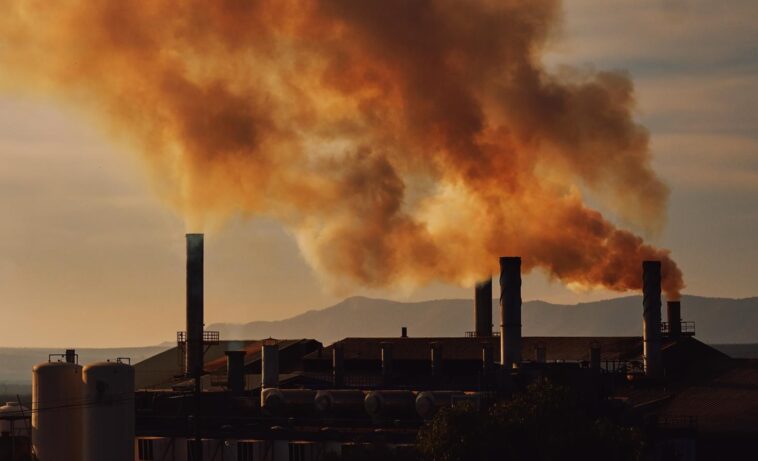As air pollution levels continue to rise in cities worldwide, researchers and public health experts are warning that current pollution targets are insufficient and could pose a severe risk to the health and well-being of future generations.
Children and young people are among the most vulnerable to the effects of air pollution, with exposure during early childhood and adolescence linked to a wide range of health problems, including respiratory illness, heart disease, and cognitive impairment. Considering these risks, many experts are calling for more ambitious pollution reduction targets to safeguard the health of our children and ensure a sustainable future for our planet.
The Growing Threat of Air Pollution

According to a 2019 report by the World Health Organization, 99% of the world’s population live in areas with poor air quality. In many cities, air pollution levels regularly exceed safe limits established by the WHO and other health organisations, putting millions of people at risk of chronic health problems, and reducing life expectancy for those living in the most polluted areas.
Air pollution can cause serious environmental and health hazards, including fatal diseases in people and animals. Difficulty breathing is linked with respiratory diseases like asthma and bronchitis. Air pollution can also have long-term health impacts, including cardiovascular diseases, lung cancer and diabetes.
One of the main culprits responsible for the surge in air pollution is diesel emissions. Monitored pollutants include nitrogen oxides, particulate matter, and sulphur dioxide, adversely impacting health, particularly the respiratory system. Diesel engines emit more carbon dioxide than petrol engines but produce less carbon monoxide. However, the emissions that diesel engines produce, such as nitrogen oxides and soot particles, are much more harmful to health than the emissions produced by petrol engines.
Many carmakers are facing accusations of manipulating the diesel emission levels of their vehicles to pass government pollution tests. The scandal, known as Dieselgate, began in September 2015, when German automaker Volkswagen (VW) admitted to rigging its diesel engines to cheat US emissions tests. As a result, millions of cars worldwide were recalled, and the company has paid billions in diesel claim compensation.
Nissan has recently confessed to joining many automakers who have manipulated emissions and fuel economy data. Nissan emission tests were found to be fabricated from tests conducted at most Japan-based manufacturing plants. Other carmakers have also been implicated, with https://www.claimexperts.co.uk
In the UK, air pollution contributed to the deaths of an estimated 40,000 people in 2019, with toxic air quality linked to a wide range of health problems, including lung cancer, heart disease, and stroke. Children growing up in polluted areas are particularly susceptible to respiratory illnesses and cognitive deficits, and many suffer from chronic conditions like asthma and bronchitis because of long-term exposure to polluted air.
The Problem of Poor Pollution Targets

Despite the clear and growing evidence of the health risks associated with air pollution, many governments worldwide have failed to take sufficient action to reduce emissions and protect the health of their citizens. In some cases, pollution reduction targets are too modest to make a significant difference, and many countries are falling behind on their commitments to reduce greenhouse gas emissions and transition to renewable energy sources.
In the UK, for example, air pollution targets do not reflect current scientific understanding of the dangers of exposure to particulate matter and other common air pollutants. The UK Government’s consultation document in May 2022 introduced two PM2.5 targets to improve public health and reduce pollution.
The first target is an annual Mean Concentration Target of 10 micrograms per cubic metre (µg m-3) to be achieved nationwide by 2040. This target seeks to regulate and minimise the concentration of PM2.5 particles in the air, improving air quality for everyone. The second target is a Population Exposure Reduction Target, which aims for a 35% reduction in population exposure to PM2.5 by 2040, compared to the reference year 2018.
London’s Members of Parliament support the need for faster action to reduce air pollution caused by PM2.5. Tulip Siddiq, a Labour MP representing Hampstead and Kilburn, emphasised the necessity for stronger targets set by the central government despite the mayor’s efforts in London.
Experts Dismiss New Targets

Despite the government’s apparent efforts to tackle air pollution, experts have criticised the new targets for being inadequate to protect public health, with a particular concern for children. Environmental law firm ClientEarth says the government’s new targets are lower than the World Health Organization’s guidelines and will fail to protect children from air pollution.
The firm states that the government’s targets may have serious implications for children’s health, including reduced lung function, worsened asthma symptoms, and increased risk of heart disease and cancer. Clean air campaigner Andrea Lee from ClientEarth criticised the government for announcing these goals just before Christmas, stating that it shows a lack of concern for the health of future generations.
The Office for Environmental Protection, which serves as the Government’s watchdog, has expressed concerns regarding the delay in implementing environmental targets. Furthermore, they have highlighted that certain targets, specifically those related to toxic air, lack strength and effectiveness.




